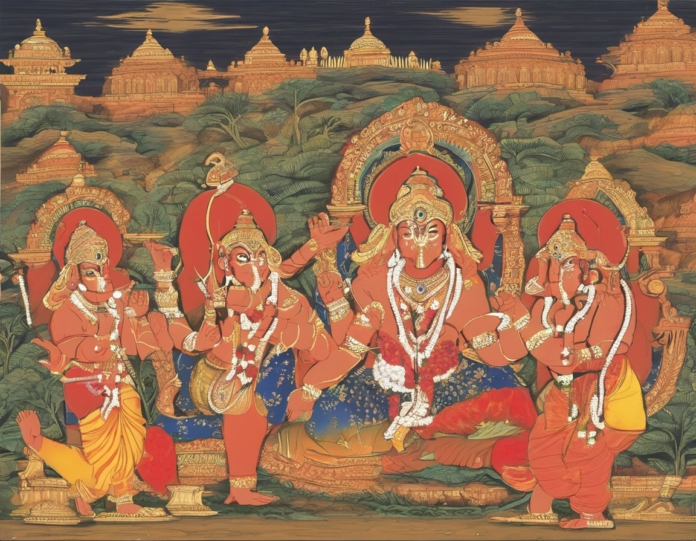Introduction
Tukaram Maharaj, also known as Sant Tukaram, was a 17th-century Hindu poet-saint from Maharashtra, India. He is widely regarded as one of the greatest spiritual poets in the Marathi language and is often referred to as the 'father of Marathi poetry'. His devotional compositions, known as abhangs, express profound spiritual insights and knowledge while advocating virtues such as humility, compassion, and devotion to the divine.
Understanding Abhangs
Abhangs are a form of devotional poetry or hymns in Marathi literature, typically consisting of a single stanza or multiple stanzas. Tukaram Maharaj's abhangs are revered for their simplicity, clarity, and profound philosophical teachings. These verses touch upon various themes such as the nature of the self, the path to liberation, devotion to God, and the importance of leading a righteous life.
Legacy of Tukaram Maharaj
Tukaram Maharaj's teachings continue to inspire millions of people across Maharashtra and beyond. His timeless wisdom transcends the barriers of time, language, and culture, resonating with seekers of truth and spiritual aspirants worldwide. The essence of his message lies in surrendering to the will of the divine, cultivating love and compassion, and recognizing the inherent divinity within oneself and all beings.
The Relevance of Tukaram Maharaj's Abhangs Today
In today's fast-paced and materialistic world, the teachings of Tukaram Maharaj hold immense relevance and significance. His abhangs offer solace to those grappling with the complexities of life, providing a guiding light towards inner peace, contentment, and spiritual fulfillment. By reflecting on the timeless wisdom encapsulated in his verses, individuals can gain clarity, purpose, and a deeper connection with the higher realms of consciousness.
Key Themes in Tukaram Maharaj's Abhangs
-
Bhakti (Devotion): Tukaram Maharaj emphasizes the importance of unwavering devotion to the divine as a means to transcendental bliss and liberation.
-
Jnana (Knowledge): The poet-saint expounds on the significance of spiritual knowledge in dispelling the darkness of ignorance and realizing the true nature of reality.
-
Vairagya (Detachment): Tukaram Maharaj advocates detachment from material pursuits and attachment to ephemeral pleasures, pointing towards the impermanence of the physical world.
-
Seva (Service): He extols the virtues of selfless service to humanity as a path to self-realization and spiritual evolution.
-
Sant-Bhava (Saintliness): Tukaram Maharaj exemplifies the qualities of a true saint through humility, compassion, and unconditional love towards all beings.
FAQs (Frequently Asked Questions)
- Are Tukaram Maharaj's abhangs available in PDF format for free download?
-
Yes, there are several websites and online platforms that offer Tukaram Maharaj's abhangs in PDF format for free.
-
Can reading Tukaram Maharaj's abhangs help in spiritual growth?
-
Absolutely, Tukaram Maharaj's abhangs are potent sources of spiritual wisdom and contemplation, aiding individuals in their spiritual journey.
-
Are there English translations available for Tukaram Maharaj's abhangs?
-
Yes, there are numerous translations of Tukaram Maharaj's abhangs available in English, allowing a wider audience to access his teachings.
-
What is the significance of chanting Tukaram Maharaj's abhangs?
-
Chanting Tukaram Maharaj's abhangs can invoke a sense of peace, devotion, and connection with the divine, serving as a powerful tool for spiritual upliftment.
-
How can one incorporate the teachings of Tukaram Maharaj in their daily life?
- By embodying the values of humility, compassion, devotion, and selflessness advocated by Tukaram Maharaj in their actions and interactions, individuals can integrate his teachings into their daily lives.
In conclusion, Tukaram Maharaj's abhangs continue to inspire and uplift spiritual seekers with their timeless wisdom and profound insights. By delving into the depths of his verses, individuals can embark on a transformative journey towards self-realization, inner peace, and divine communion.

